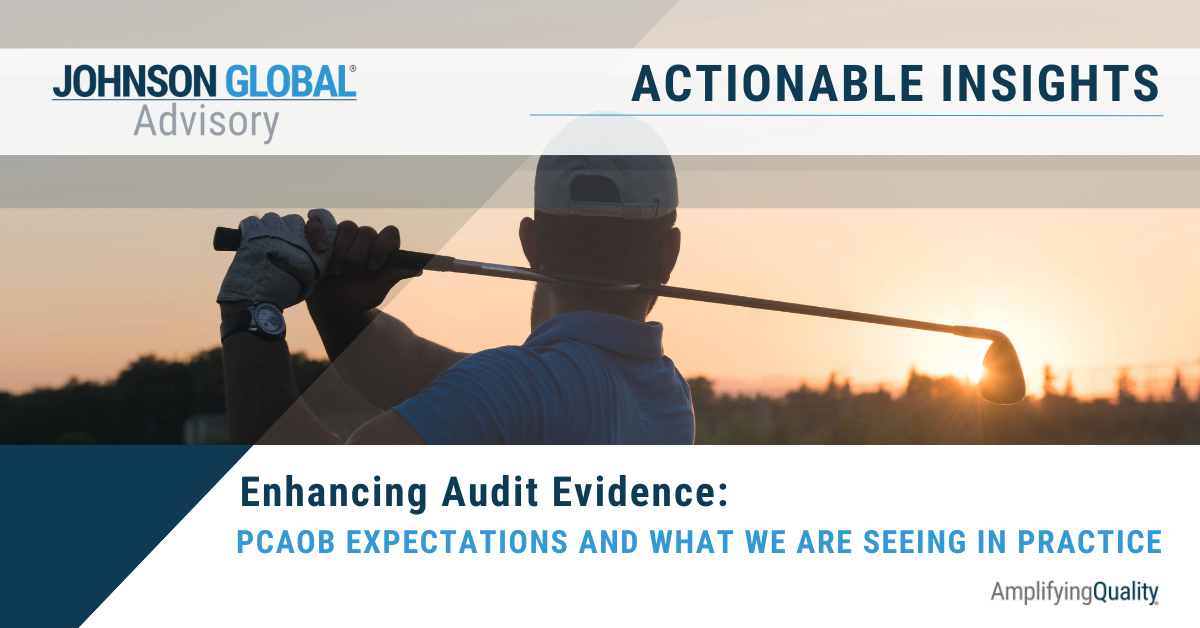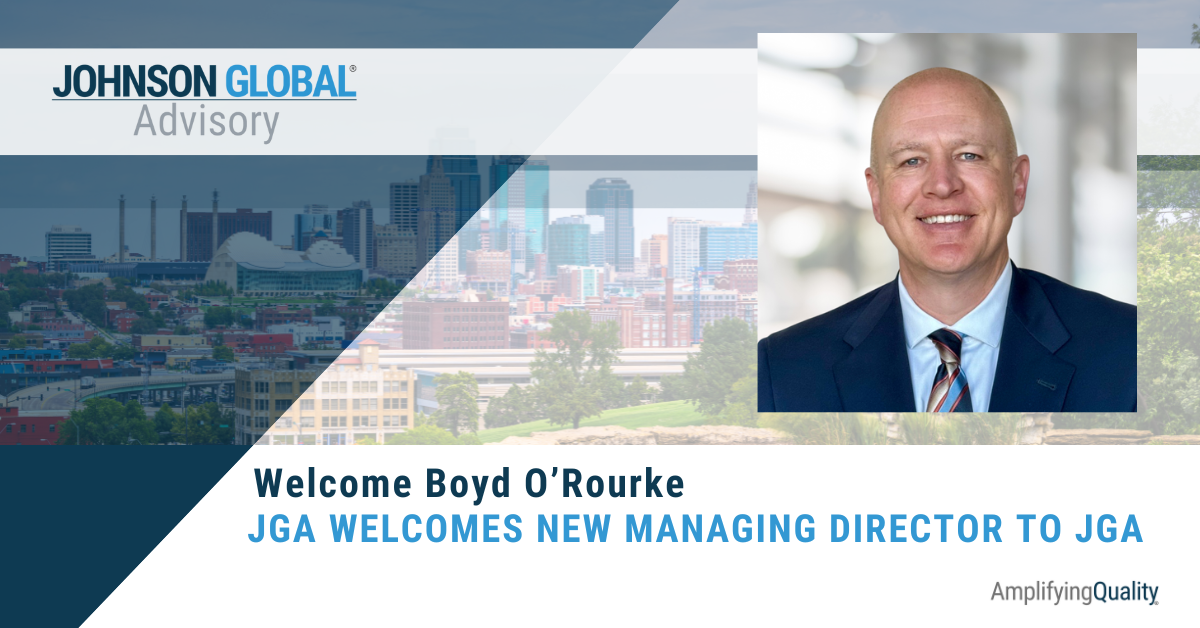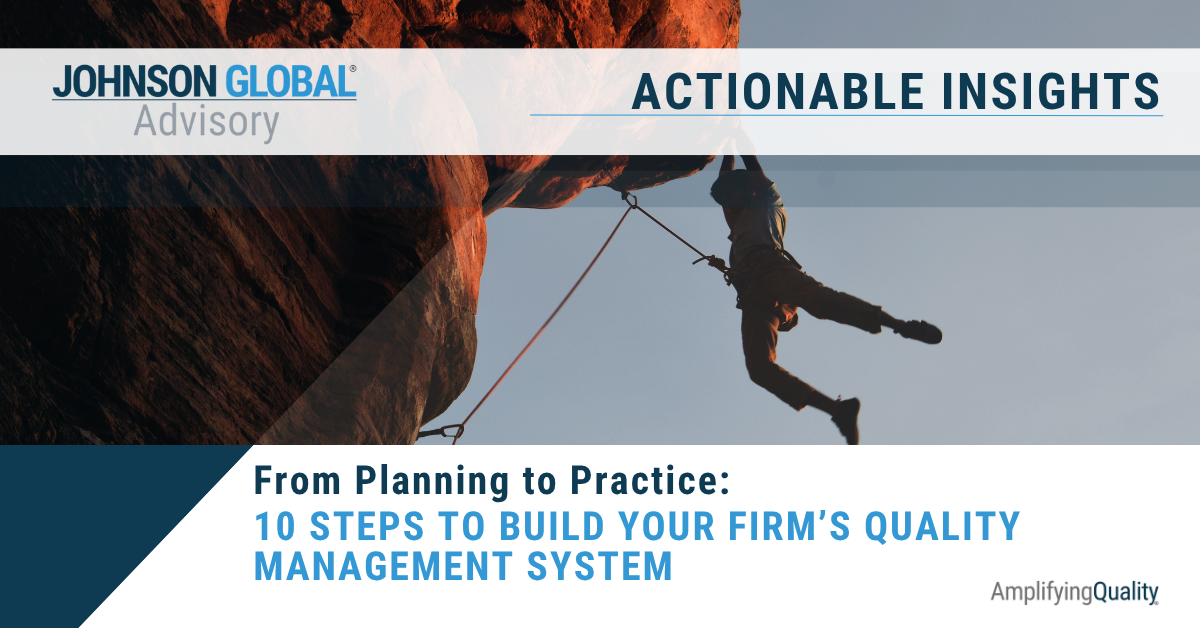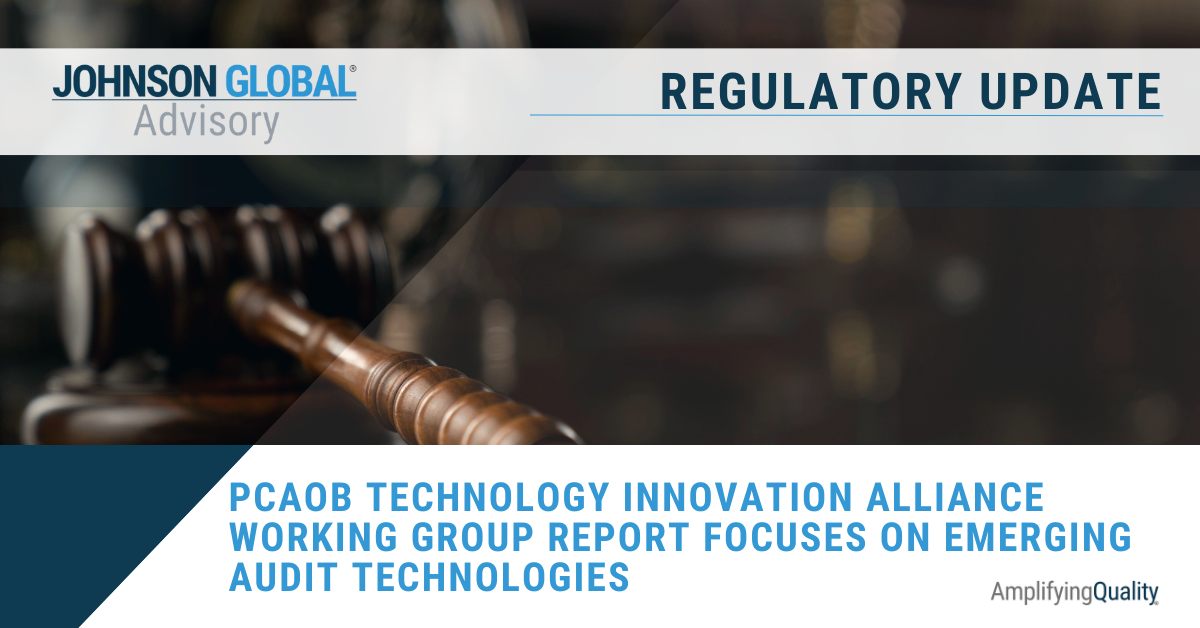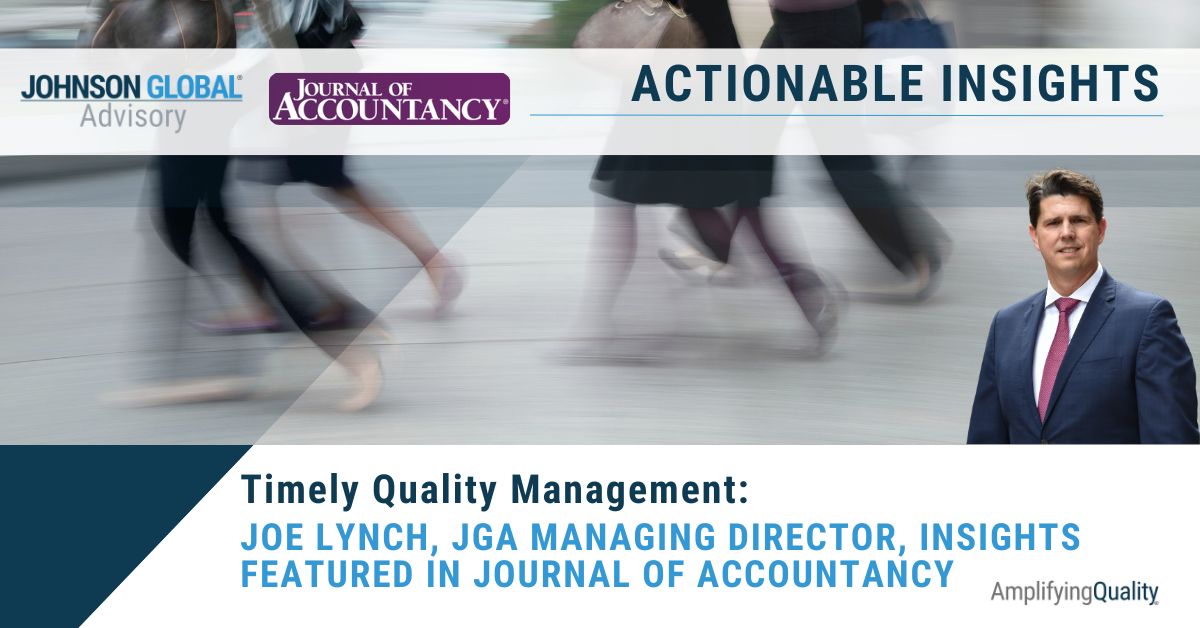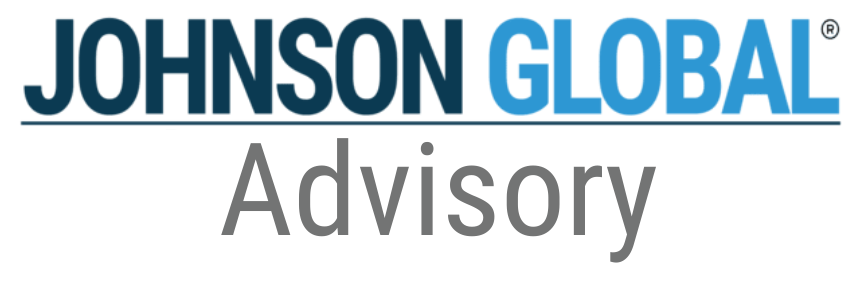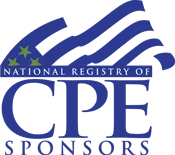Independence Violations: Why are there still flaws in the independence wall of armor?
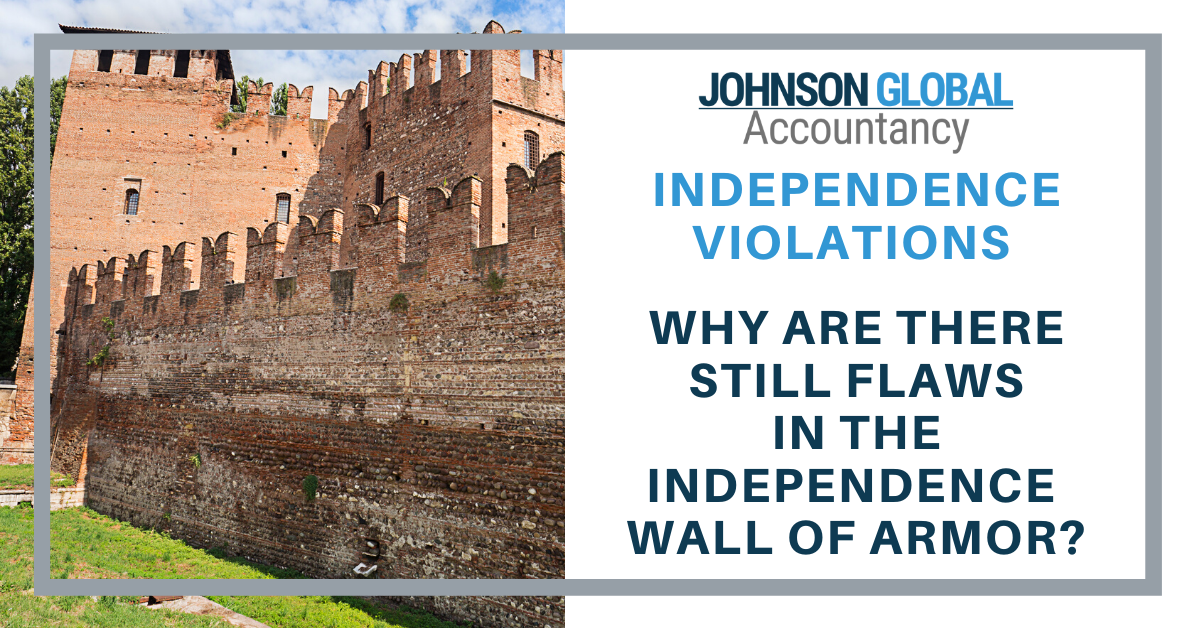
You would think that for the many decades that the independence rules have been around, auditors should be able to easily maintain their independence from their audit clients. Alas, it seems like every time we turn around there is another breaking news story about an independence violation being reported on by the SEC or the PCAOB. These violations should be the easiest to avoid, but over the years being lax on this basic process has caused much unnecessary stress and embarrassment.
Why does auditor independence matter?
Independence is the backbone of the auditing profession and is laid out in both SEC regulations and the PCAOB’s General Auditing and Quality Control Standards. PCAOB AS 1005 requires that an auditor’s independence is paramount as “an independence in mental attitude” is to be maintained by an auditor. As the auditor, you must not have any bias or appearance of any bias. Any bias, no matter how big or small, will rust away at the impartiality that is necessary for your findings to be relied upon by the users of financial statements. Even if you have the best technical proficiency, any break in the wall of armor of independence will weaken the wall to a house of cards.
What are some of the common pitfalls?
The independence rules are tucked away in Rule 2-01 of Regulation S-X, along with various FAQs that have been released along the way. Be that as it may, all audit firms generally have an audit program that helps guide engagement teams through the independence checking process. Engagement teams typically perform independence checks and procedures during audit pre-planning. However, even with the best of programs, these pitfalls can trip you up. Here are some areas to consider:
- Delegation to the right level staff – Sometimes engagement teams may seem to be just going through the motions by delegating responsibility of completing these independence procedures to a less experienced engagement team member that may not even fully comprehend what they should be looking for.
- Engagement team confirmation – It is important that independence is confirmed for all team members, including engagement team members that may join your engagement team in the middle of interim or final fieldwork. Don’t forget to include your firm’s internal specialists (tax and valuation specialists).
- Non-audit services – It's widely known that non-audit services are typically more lucrative economically than your typical attest service. There is always the pressure to improve your revenue growth goals by bringing work into your firm, and as the audit partner you may accept a non-audit service without having done the full due diligence of the service being performed. After all, no one wants to turn down profitable work! The problem is ensuring that non-audit services to issuer audit clients comply with PCAOB rules and SEC regulations, since there have been a number of recent violations in this area.
- Foreign affiliate considerations – Also, don’t forget to include foreign affiliates of the firm in your independence confirmation procedures, especially on large multinational issuers – you would hate to find out that a foreign affiliate performed bookkeeping or payroll services for a subsidiary or component of the issuer you are auditing!
How to overcome these pitfalls?
- Make sure your auditing firm has clear and easy-to-find independence policies and procedures and includes training on these policies, at least annually along with consistent messaging from leadership. If you want to make it important, include compliance with the firm’s independence policies and procedures as a consideration to an auditor’s compensation or promotion.
- Assign these procedures to the appropriate level of engagement team member. Independence procedures are an important part of the success of any audit and the independence rules can be daunting. Sometimes the most junior staff person is not that person! The goal is certainly not to create independence experts out of everyone on your engagement team, but to ensure that your team knows the basics (i.e. Independence 101) and what they need to do if they are unsure about something and who to ask questions.
- Review your quality control systems. Recent violations have called out firms for their lack of quality control systems in place to monitor, identify and react to independence concerns. If this is something that keeps you awake at night, consider performing a detailed review of your quality control system.
- Lastly, if you are unsure, consult, consult, consult! No one knows every nuance of an independence issue. Use your firm’s network of independence specialists – that’s what they are there for and they have probably come across your issue before.
It’s better to get ahead of an independence issue than determine after completion of your audit that your firm was not independent. Repercussions could be dire – a pulled audit opinion, potential loss of the client, damage to your firm’s reputation, and potential fines and sanctions by the SEC or the PCAOB. Don’t wait to act! You want your independence wall of armor to be firm and steadfast!
Geoff Dingle, Johnson Global Managing Director, works with PCAOB-registered accounting firms helping them identify, develop, and implement opportunities to improve audit quality. With over 20 years of public accounting experience, he spent nearly half of his career at the PCAOB where he conducted inspections of audits and quality control. Geoff has extensive experience in audits of ICFR and firms’ systems of quality controls. Prior to the PCAOB, he worked on audits in various industries at Deloitte in Atlanta and Durban (South Africa).
